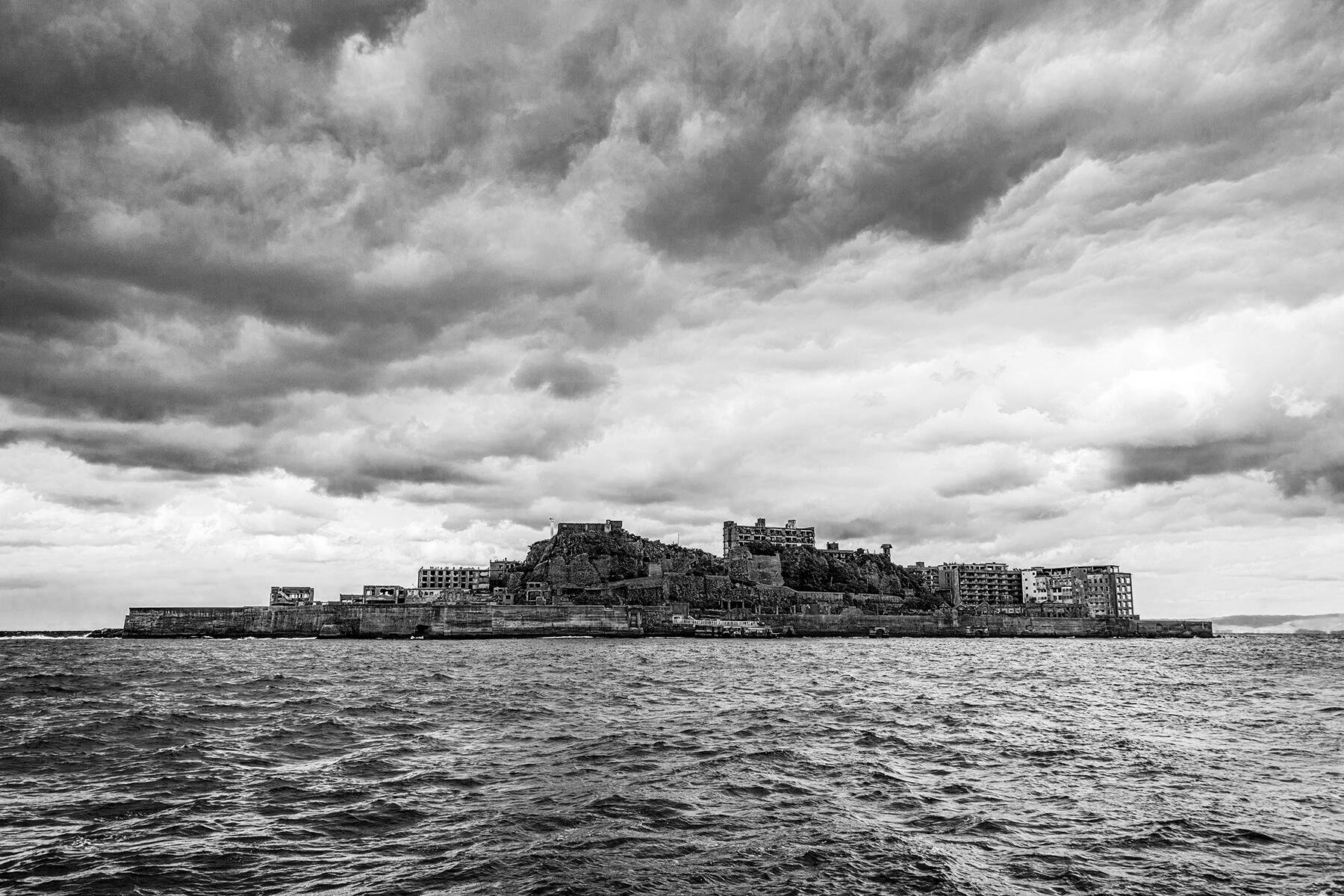Jit’s Island
Nathan Leslie
Denis Jit viewed his purchase of the island as an occupation, a lifestyle. He hired men with machine guns to sit in wooden perches at six points around the island with orders to fire upon any vessel approaching the rocky shore of his island. He chopped down all the trees and burnt the scrub and leveled the island so that all that could be seen was his house, surrounded by Dobermans and a jagged fence and a sophisticated alarm system, in case any who might want to hurt him made it past the various men with guns protecting his island. He dubbed the island Jit’s Island.
The archipelago, as you may know, is extensive, containing hundreds of tiny islands, so many islands, including our Loaf Island, we lack a name for each. One of the most unpleasant islands we call Mosquito Island. In reality, the island likely has, most likely, no more or less mosquitos than any other island, however, for some reason the mosquitos seem worse on Mosquito Island than any other island.
Thicker, more painful. More prodigious.
Mosquito Island, however, underwent a name change. This is as a result of Denis Jit, a mainlander who came to live among us here on Loaf. Denis felt unhappy living in the city and he constantly complained of the noise and the bustle. We knew of Denis because he was the tall man with the gold jewelry—gold rings, gold watch, gold necklaces. While he lived in the city, he wore bathrobes and underwear only (what was it about mainlanders who ventured to our island and refused to wear clothes?), even while at market or window shopping on our streets. When a shop owner asked him why he was so underdressed Jit said, “I thought this was a relaxing place to be; I thought it was ‘laid-back’ here on the islands.” The shop owner, a Gavin Ullster, became argumentative and the two men pushed and shoved and screamed at one another. Eventually, Jit simply left the store and the city.
“I want my own island,” he said. He was at city hall and he demanded to purchase one immediately. “I have the cash.” Denis pounded on the desk and jabbed his finger in the air. A dagger. An ice pick of flesh. He wore ragged shorts and a t-shirt stained with Jaga juice on his right shoulder. His hair was mussed, as if he recently lifted it from his pillow.
“Sir,” the assistant said. “Sir.” The assistant wore a green tie, his hair combed and orderly.
“Look at me. Do I seem the type to ponder and waffle?”
“No, sir.”
Jit’s short assistant tagged along, his pointed shoes clacking on the floors. The one Jit called “Little Guy.”
“This is your job!” Jit frothed.
Of course, it was not that simple to purchase an island. People resided on most of the islands and the unoccupied ones were unoccupied for a reason. Several islands were deemed unsafe or had poor soil or were so tiny and windswept it would be difficult to build structures upon them or there was a dormant volcano or source fresh water (the most common problem). Jit shook his hands and demanded that the city hall employees figure it out.
“This is your job,” he said, pounding his fist onto a thick wooden table. “
Eventually, and after much complaining by Jit, the bureaucrats at city hall came to a decision—he could purchase Mosquito Island for a sum of five million Hulpas. Of course, they did not refer to Mosquito Island as “Mosquito Island.” They called it Flamingo Island instead. There are no flamingos on our archipelago that we know of. The way the bureaucrats saw it, Jit was doing them a favor.
And Jit lived for years on his island. He held lavish parties for mainlanders who traveled for hours and paid hundreds to drink his imported liquor and beef and swim in the sound and dance like idiots on the beach. Drunken revelry. Orgies. Hollering at all hours, shooting of guns, explosions. The mainlanders pissed on the dainty purple and orange Turanga flowers and caught and barbecued the rare Berkuta lizards. We could do nothing.
He built an airstrip so that the mainlanders could fly directly to his island. They littered it with plastic bottles and shat on the chalky pebbles. We were outraged and knocked on his door to complain but the men with machine guns brushed us aside and threatened our families.
“If you would like to live one more day,” Jit said. “You should find a hobby. Go collect shells. Go sweep the dirt floor of your shabby hut.”
Jit did help the mosquito problem, however. Without trees or foliage or animal life, the mosquitoes thinned, dissipated.
He resided on his island for ten years, though frequently we would see Denis Jit bumping about the city for one reason or another—usually it had to do with the bank. One day he was stabbed to death in a back alley. This took place late at night and for at least a day he was proclaimed “missing.” Rumor was that he was killed by Little Guy, who had become disgruntled over the manner in which Jit talked to him and the other men. He had had it.
In court Little Guy proclaimed that he had no intention of killing Jit, but he also admitted that he had it coming and that nobody would0 truly miss him. He was perhaps right on those last two points. Though he served six years in prison, a judge eventually granted Little Guy clemency and he was released. Some say he is hiding in a cavern on Goat Head’s Island. Some say he lives in a cottage on Cliff Island. Some of us do not believe in his guilt; some of us believe he was covering for one of us.
Later the island was seized by the government and recently Jit’s house was torn down, bit by bit. The wooden perches were dismantled.
The plants are growing back, the mosquitoes are returning. In another ten or fifteen years the island may be back to what it was, little sign of Jit at all.
Nathan Leslie won the 2019 Washington Writers' Publishing House prize for fiction for his satirical collection of short stories,Hurry Up and Relax. Nathan’s nine previous books of fiction include Three Men, Root and Shoot, Sibs, and The Tall Tale of Tommy Twice. He is also the author of a collection of poems, Night Sweat. Nathan is currently the series editor for Best Small Fictions, the founder and organizer of the Reston Reading Series in Reston, Virginia, and the publisher and editor of Maryland Literary Review. Previously he was series editor for Best of the Web and fiction editor for Pedestal Magazine. His fiction has been published in hundreds of literary magazines such as Shenandoah, North American Review, Boulevard, Hotel Amerika, andCimarron Review. Nathan’s nonfiction has been published in The Washington Post,Kansas City Star, and Orlando Sentinel. Nathan lives in Northern Virginia.


